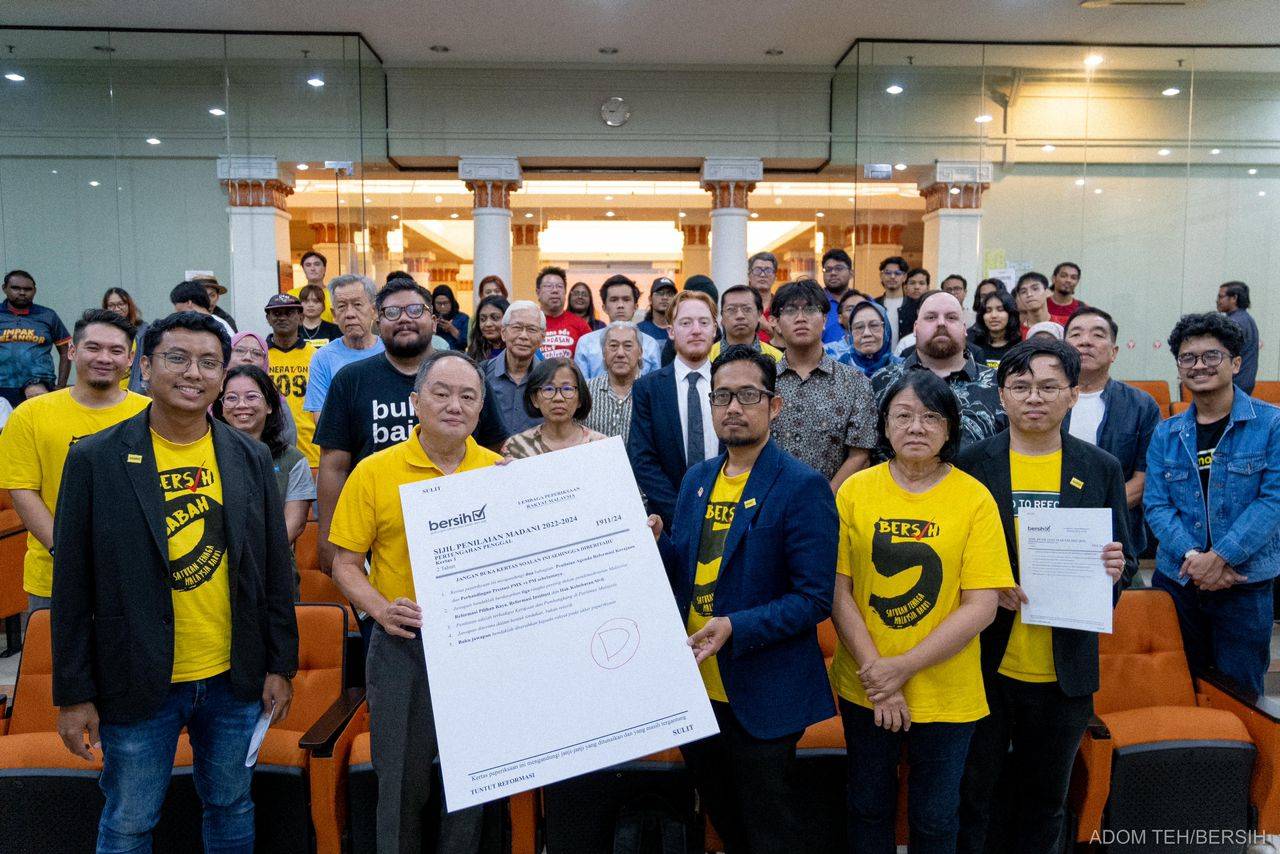What Bersih’s report reveals: Ismail Sabri ranks first, PH and BN reforms still unfulfilled
Bersih recommends 10-year PM term limit, urges urgent reforms.

Bersih recommends 10-year PM term limit, urges urgent reforms.

SHAH ALAM - The Coalition for Clean and Fair Elections (Bersih) gave the Unity Government led by Prime Minister Datuk Seri Anwar Ibrahim a disappointing 'D' grade for its performance over the past two years.
The group highlighted a lack of progress in fulfilling reform promises, even as it acknowledged some achievements.
Bersih also ranked former Prime Minister Datuk Seri Ismail Sabri Yaakob as the best Prime Minister since 2009, citing his administration's reform milestones.
Bersih chairman Faisal Abdul Aziz stated that the government’s low grade stemmed from a significant gap between its reform rhetoric and actual progress.
He expressed concern that the coalition government appeared to have sidelined key electoral and institutional reforms outlined in the manifestos of both Pakatan Harapan (PH) and Barisan Nasional (BN).
"We believed that a post-election coalition government should not have been an excuse to abandon all reform promises made in the manifestos of PH and BN.
"This was especially concerning given that there were four common major promises in both the BN and PH manifestos — which showed they were in agreement — that had not been fully implemented.
"Prime Minister Anwar himself was the leader of PH when these promises were made to voters," he said while presenting Bersih's report card.
Among the unfulfilled pledges highlighted were reforms to strengthen parliamentary independence, enact political financing laws, and introduce term limits for the prime minister.
Bersih also placed Ismail at the top, citing his administration’s notable bipartisan achievements, including the passing of the anti-hopping law and the lowering of the voting age from 21 to 18, both of which were outcomes of a memorandum of understanding (MoU) between Ismail’s government and PH.
Tun Dr Mahathir Mohamad, during his tenure as PH’s prime minister, ranked second, followed by Anwar, Tan Sri Muhyiddin Yassin, and Datuk Seri Najib Razak.
Bersih’s report commended Ismail’s ability to push through significant reforms despite his government’s fragile parliamentary majority.
The watchdog contrasted this with the unity government, which enjoyed a strong majority but had yet to deliver meaningful changes.
Bersih’s report described the lack of major reforms under Anwar as “perplexing,” given the unity government’s firm grip on parliamentary power.
While acknowledging Anwar’s engagement with civil society—the first by a sitting prime minister—Bersih noted that the government had not demonstrated urgency in advancing reforms despite being at the midpoint of its term.
Bersih’s recommendations included introducing a 10-year term limit for the prime minister, accelerating the separation of roles between the attorney-general and public prosecutor, and enhancing parliamentary oversight for key appointments to bodies such as the Election Commission and Malaysian Anti-Corruption Commission.
Bersih did not spare the opposition coalition Perikatan Nasional (PN) from criticism, accusing it of failing to play a constructive role as a check and balance on the government.
Faisal said PN’s approach lacked the depth and seriousness needed to contribute meaningfully to democratic accountability.